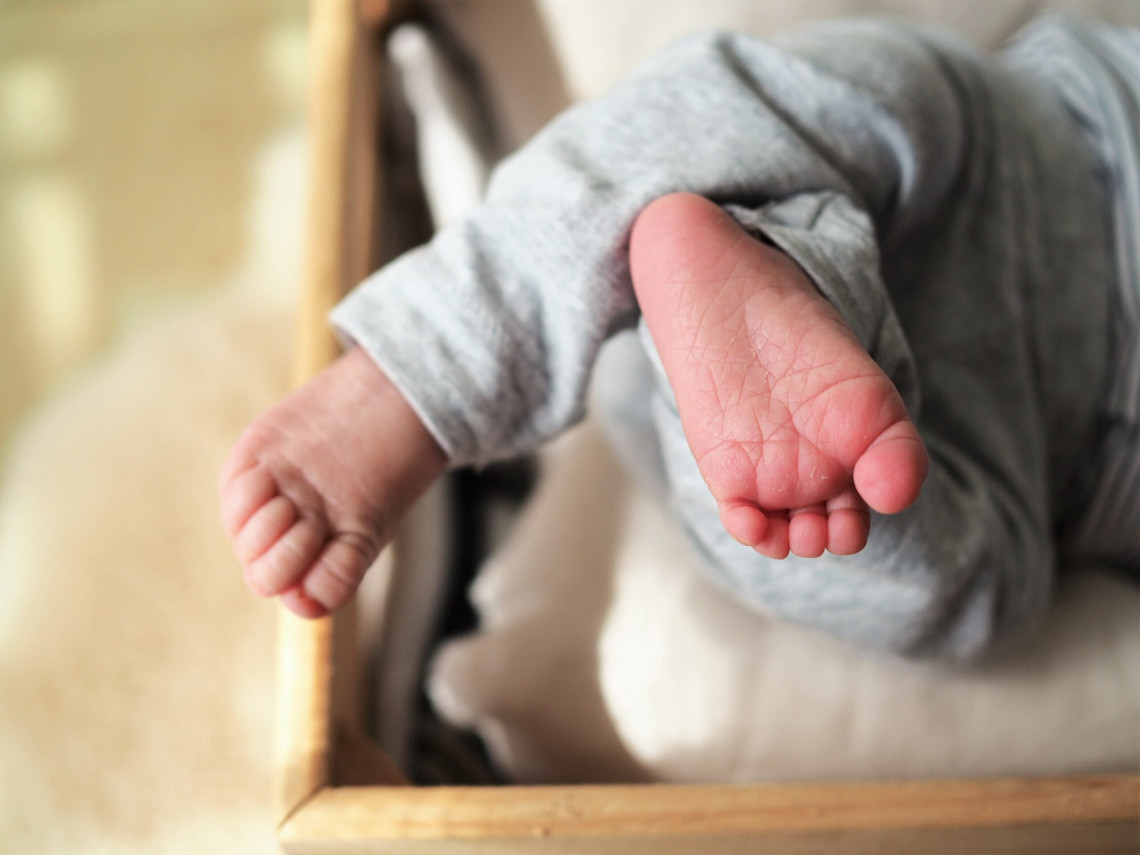
Giving birth in Germany
On the twelfth day after my due date my true love gave to me: a baby, finally!
Pots of “Eisenkrauttee” (verbena tea) infused with ginger, cinnamon and cloves left me feel rather christmassy in August. It’s a mixture that’s supposed to help induce labour. It didn’t help in my case though and in the end I had to be induced at the hospital. But if you’re looking for a nice Christmas tea and/or would like to bring on labour naturally, I’m sharing the recipe below!
Just so there are no surprises: In this blog post I also mention my first birth in England, which took a rather dramatic turn towards the end. Furthermore, I’m talking frankly about my birth experience, so if you’re feeling squeamish easily, this might not be for you. However, it’s still a very positive induction and VBAC (vaginal birth after caesarean section) birth story! Finally, I’m just a regular woman who gave birth twice and shares her experience. I’m not a doctor, so if you have any pregnancy-related issues, please check with a health professional.
Choice of hospital
In the morning of the 6th September we made our way to our hospital of choice, the Helios Klinikum in Erlenbach am Main. As much as I wanted to avoid an induction, it was actually quite nice to drive to the hospital calmly and to be able to send off my toddler without any rush. As check-ups should be every other day once you’ve gone past your due date here in Germany, I had already gotten to know some of the midwives and doctors on call, which was reassuring.
It’s helpful to arrange a booking-in appointment with the hospital about four to six weeks before your due date to get all the paperwork done but this is not compulsory. If you’re in labour you can basically show up at any hospital with a maternity ward. If you’re low risk you can also give birth in a “Geburtshaus” (birthing centre) or at home with the help of a “Hebamme” (midwife). I opted for a smaller hospital that is certified as baby-friendly by the WHO and is also known for doing less interventions and offering excellent breastfeeding support. But often, maternity wards here in Germany have a more holistic approach to medicine, so you might be offered things like homoeopathy or acupuncture alongside conventional medicine.
Maternity wards in Germany
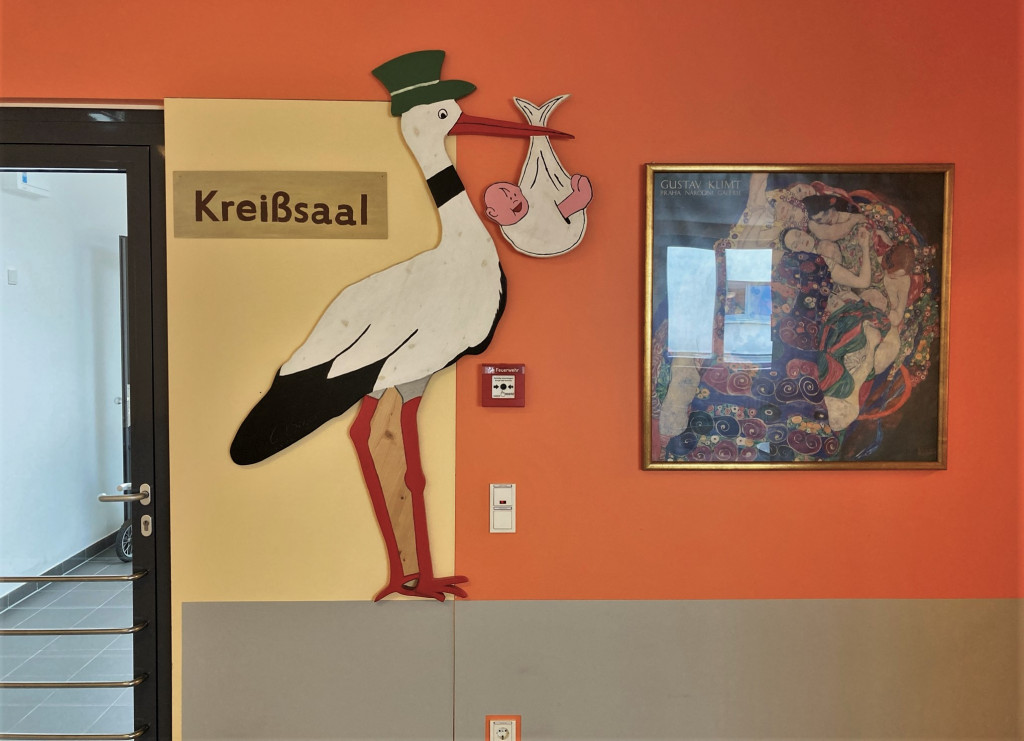
If you’d like to find out more about the maternity wards in your area, I’d recommend checking the “Kreißsaal-Navigator”, a website that helps to determine the right hospital depending on what’s important to you. I really wanted to avoid another C-section, so I chose a hospital with a low C-section rate and one-to-one care by a midwife. If the “Kreißsaal” (labour ward) gets really busy, it can happen that one midwife is in charge of multiple births. I’m so thankful that the midwife who delivered my baby stayed with me at all times. I couldn’t have done it without her as she gave such good instructions on birth positions and she protected my perineum really well by applying warm cloths and oil during the pushing stage.
Birth preparation
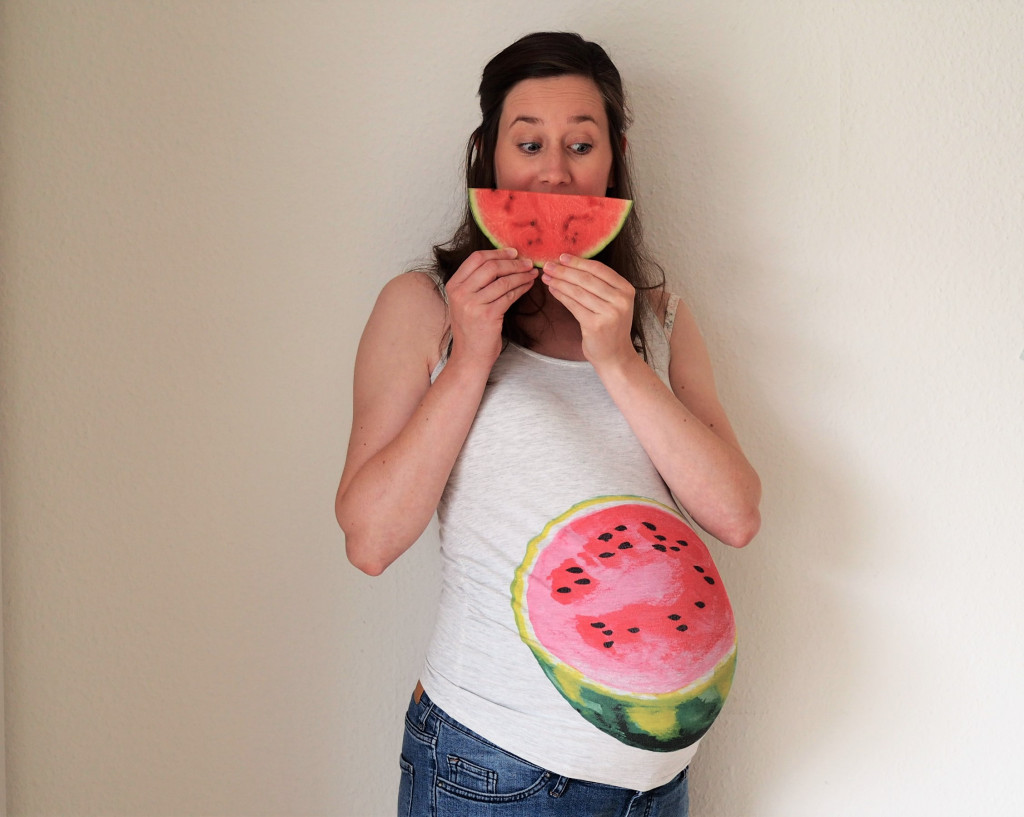
I attended an online antenatal class for second time mums with Faye from Mutterwerden, which allowed me to process my previous birth and to work on my mindset about birth, too. I’d say that mental preparation is as much important as getting all the practical things ready, which is why I also did an online hypnobirthing course with the Positive Birth Company.
If you know any German, I can also recommend the two podcasts “Die Friedliche Geburt” by Kristin Graf and “Hebammensalon” by the two midwives Kareen Dannhauer and Sissi Rasche. Yep, I did a lot of preparation and I also wrote a birth plan for the hospital staff. I’m well aware that births often don’t go to plan but I wanted to be able to make informed decisions and look forward to this birth without any fear. In my view, birth is something to be celebrated and not that awful, painful thing you have to go through if you want a baby.
Healthcare in Germany
Maternity care is part of the health care system in Germany, which is compulsory and works as a dual system of both public and private insurance. The vast majority of residents (almost 90%) is covered by the “gesetzliche Krankenversicherung” (statutory health care). This type of health care is funded through contributions and subsidised by the government. In short, workers and employees pay 7.3% of their gross income, employers add another 7.3%, which then amounts to 14.6% health insurance contribution. If only one parent works the whole family is covered by those 14.6%, regardless of how many dependants there are.
Prenatal care in Germany (Schwangerschafts-Vorsorge)
Most women in Germany are already registered with a gynaecologist practice and will have their prenatal check-ups there, including ultrasound scans and blood tests. So as soon as you’ve done a pregnancy test, which you can buy from pharmacies or supermarkets, you’d typically make an appointment with your GYN.
Finding a “Hebamme” (midwife)
You can also decide to do your check-ups with a midwife, apart from ultrasound scans. That is if you’re lucky enough to find one! I would strongly encourage everyone to start looking for a Hebamme as soon as there’s a positive pregnancy test. The Hebamme will also visit you at home after giving birth in Germany and help you with any struggles you’re facing with a newborn. And let’s be honest, there can be many!
Sadly, there’s a shortage of Hebammen at the moment, which means that many women don’t get the help they’re entitled to during the postpartum period. Note that the midwife who does your prenatal and postnatal checks is normally not the one who delivers your baby, unless you have a “Beleghebamme”. That’s the type of midwife who can do all your check-ups and then comes to the hospital with you to deliver your baby. If you find a Beleghebamme you’ve hit the jackpot, I’d say. Your GYN and your “Krankenkasse” (health insurance provider) can help you find a midwife. Or you can look for one in the Hebammenliste.
What’s done at a prenatal check-up?
During your check-ups your GYN or midwife will check your blood pressure, urine and weight to make sure that everything is on track. Sometimes there will also be blood work done, especially right at the beginning of your pregnancy. All those test results as well as your medical (birth) history will be recorded in your “Mutterpass” (mother passport) – a super important little booklet that you should bring to all prenatal appointments.

Your GYN or midwife will discuss any issues with you and sometimes does a vaginal examination too. Public health care offers three ultrasound scans at 9-12 weeks, 19-22 weeks and 29-32 weeks. You can always top that up by opting for so-called “IgeL (individuelle Gesundheitsleistungen)”, extras that are not funded by the Krankenkasse but will have to be paid privately. Examples are tests for toxoplasmosis, cytomegaly and trisomies like Down’s Syndrome.
Giving birth in Germany: a positive VBAC & induction story
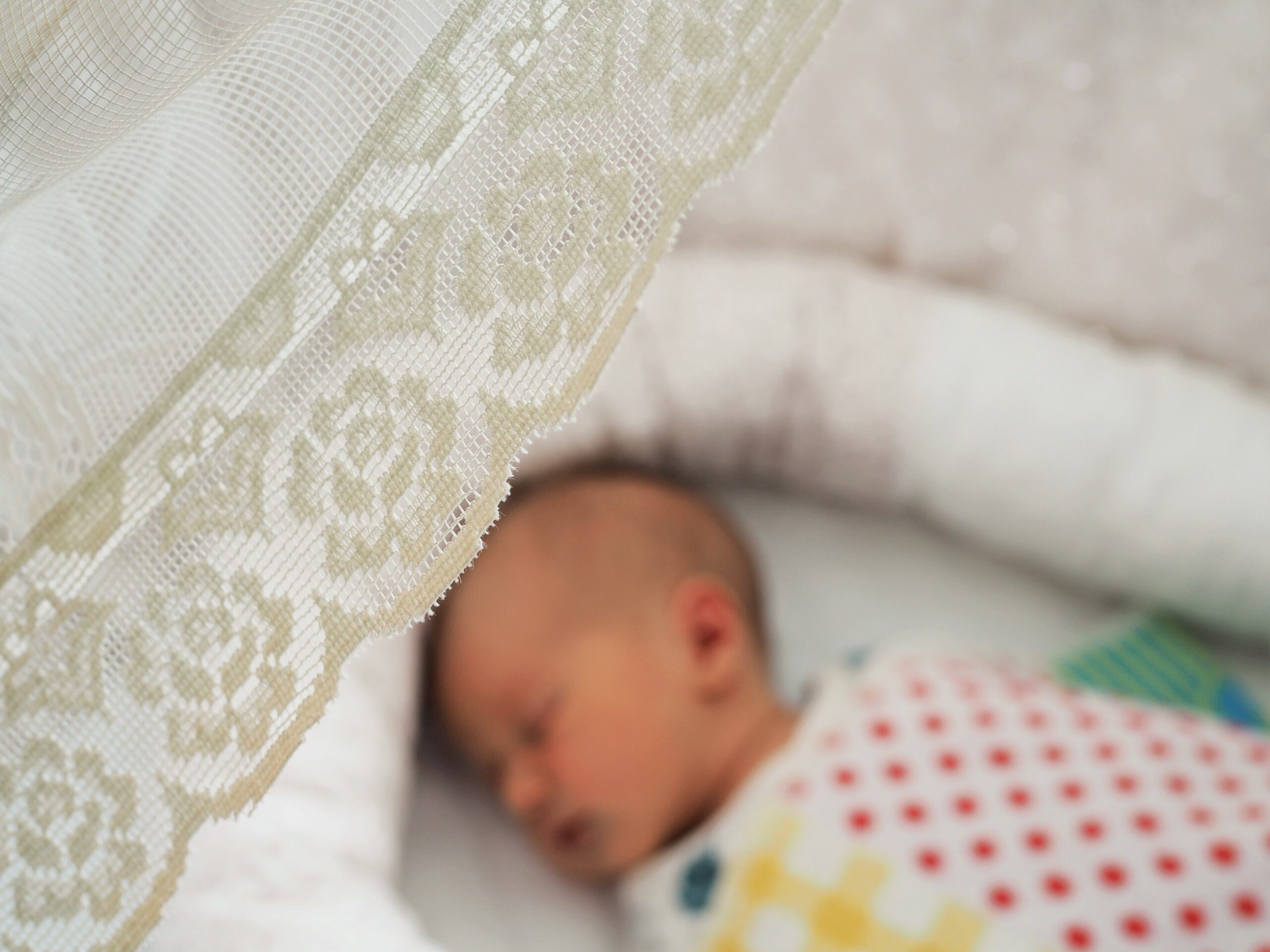
Right, let’s talk about my second birth then! From the beginning of my pregnancy I was adamant to try for a VBAC as the C-section with my firstborn was unplanned, which I found quite traumatic. When my due date came and went and I got close to being induced, I was really nervous that one intervention would lead to the next and I’d have to have another caesarean. At this point I was so glad that I had chosen a smaller, more holistic hospital, that allowed me to go twelve days past my due date. Normally, an induction is strongly recommended once you’re ten days overdue. However, my baby was well, I had enough amniotic fluid and when a midwife performed a sweep, my cervix was favourable and already 2 cm dilated. So back home I went, but baby still didn’t make an appearance and I went back to the hospital two days later for an induction.
Giving birth in Germany: the hospital stay
My husband and I could stay in a “Familienzimmer” (family room), an ensuite room with two hospital beds pushed together. This is not covered by public health care and was 70 Euro per night. But we had our privacy and when my husband checked out before I had been discharged, I was lucky that nobody else joined me in this room. If you don’t book a Familienzimmer you usually share a hospital room with at least one other woman and her newborn.
I really enjoyed those few days in hospital on my own with my new baby. Yes, I was super sore and cluster-fed a newborn all night but I was given food without having to clean up afterwards, had unlimited access to coffee and tea and really good breastfeeding support. Sanitary products like nappies and pads and even baby clothes were provided; nurses, midwives and doctors checked on me and my baby regularly, so I felt in really good hands. Those last few weeks of being heavily pregnant and looking after my toddler were exhausting, so I shamelessly admit that I was glad to have those few days off whilst he enjoyed some quality time with his dad and grandparents.
How induction of labour worked for me
On midday of the 6th September I was inserted a gel with the hormone prostaglandin to induce labour. I had to lie down for an hour whilst baby was monitored with a cardiotocograph (CTG). Once induction has started, you’re not allowed to go home anymore but you’re free to move around hospital grounds, so my husband and I went for a walk in a nearby forest (where he caught a tick!). Dinner in German hospitals is early, at about 5pm, so I had my slices of bread with cheese and ham and decided to have a lie-down afterwards. Whilst I was listening to some relaxation tracks by the Positive Birth Company, I had my first stronger contractions but was able to breathe calmly through them.
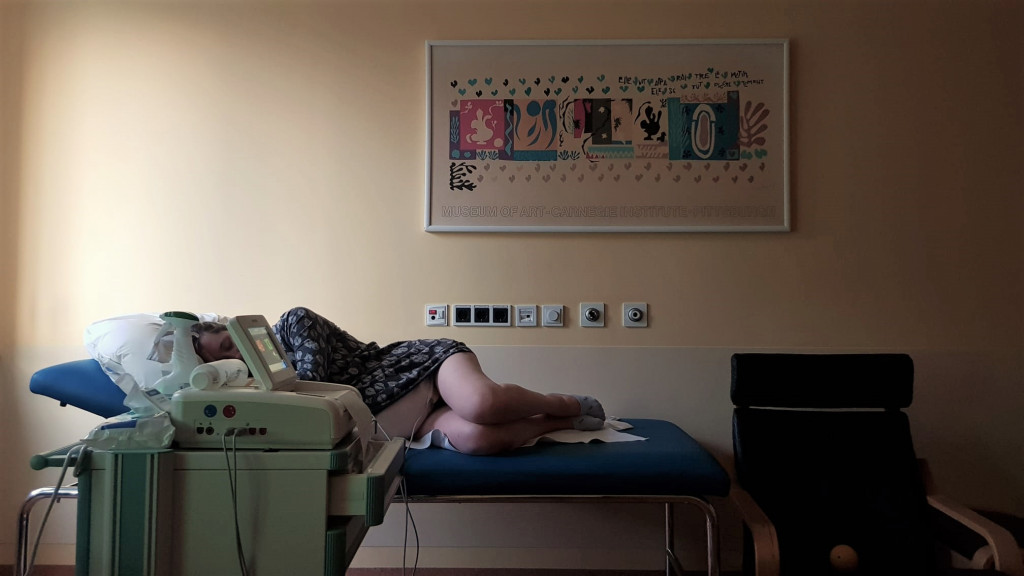
My positive birth story
Suddenly I could feel something trickle down my legs and thought my waters had broken, but it was actually a massive bloody show. I was really worried that something’s wrong, but the nurses weren’t concerned at all and sent me straight to the Kreißsaal. There, a midwife examined me and said I was 4cm dilated, hooray! I was offered the birthing pool but refused as I thought it could still be a while. How wrong I was! So off we went with our wonderful midwife, who gave us a mat and a birthing ball and left us to do our thing in the Kreißsaal. I tried different labour positions but contractions had already gotten quite intense, so I just wanted to rest in between them on the bed.
Plop, all of a sudden my waters went whilst I was leaning over a sick bowl, getting rid of all that wonderful hospital food. What a relief that was! From that moment on, I had a strong urge to push, so the midwife examined me again and confirmed that I was fully dilated. I tried to breathe calmly through my contractions but they were so intense that I always ended up in zone red, screaming from the top of my head. However, baby descended nicely, my midwife repeatedly told me that I was doing really well and helped me change birth positions. At 22:14, about two hours after my waters had broken and only four hours after my first stronger contraction, my daughter was born!
That feeling of having birthed her without any pain relief, seeing her slip out of me and picking her up for the first time – it was exhilarating. I have never run a marathon before but I suspect that feeling of having achieved something so extraordinary once you pass the finish line, must be similar.
Thankfully, my perineum didn’t tear but I had a labia tear that needed stitching. And that was the first time I requested pain relief as I found it really uncomfortable. I had an injection to deliver the placenta and my husband cut the cord, whilst baby latched on for the first time. We had a lovely first hour on our own, marvelling at this beautiful baby that entered this world in such a swift and determined manner after we had waited so long for her.
Postnatal care (Nachsorge) in Germany
After having spent three nights in hospital, I was glad to be reunited with my husband and son. Because of Covid, children weren’t allowed inside the hospital but thankfully the weather was nice, so we were able to meet up outside once.
If you stay in hospital a few days, you’ll be offered to do the “U2”, one of a series of check-ups throughout childhood (“Früherkennungs-Untersuchungen”). Nurses will also do a hearing test and a newborn blood spot test to check for rare but serious health conditions. All those test results will be recorded in a yellow booklet, the “Untersuchungsheft”, that you will have to bring to all check-ups with your paediatrician.
The midwives on call will also check on the mum, making sure that birth injuries are starting to heal and the uterus is retracting to its pre-birth state. I’m amazed at how quickly I recovered from giving birth, considering that I had grown this baby for nine months!
“Wochenbett” (postpartum period)
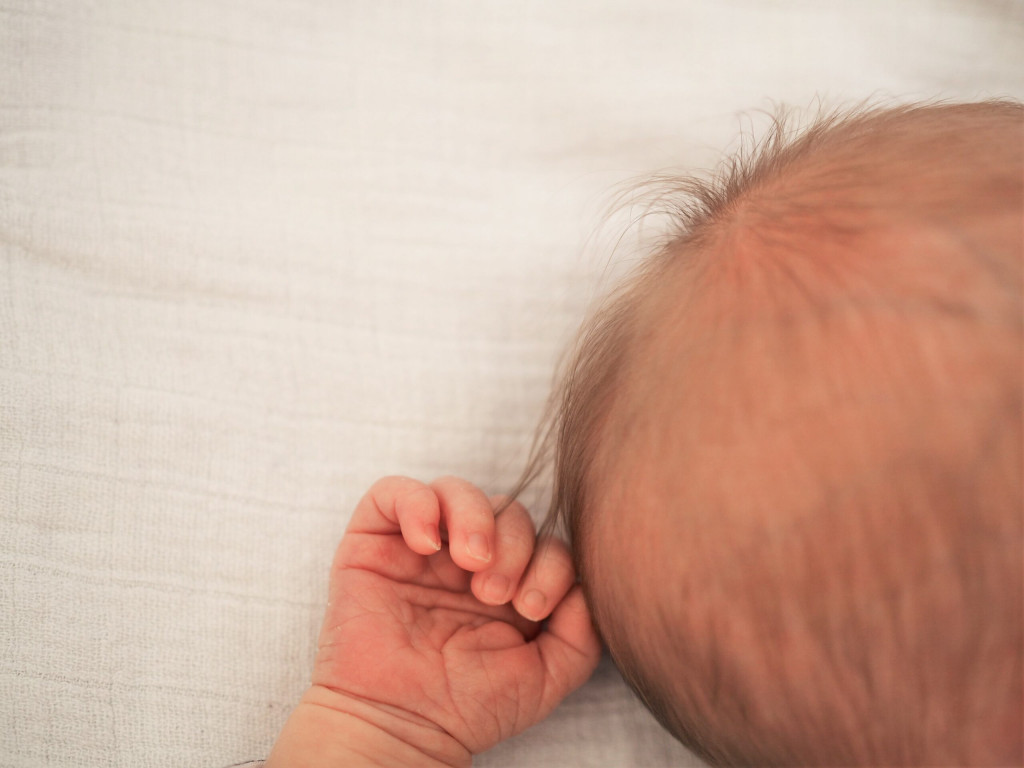
Once you’ve been discharged from hospital, your Hebamme will visit you every day at home for ten days or as much as you need her in the next few weeks. She will ask about your “Wochenfluss” (lochia), how breastfeeding is going and check on your birth injuries if necessary. She will weigh your baby and answer any questions you might have about caring for your baby.
I believe that being prepared for the “Wochenbett” is crucial to be able to have a smooth recovery. Thankfully my husband could take one month of parental leave to look after our son and the household. My mum had filled our freezer with lots of yummy food and friends from church dropped off meals twice a week.
Rückbildungs-
gymnastik
(postnatal exercises)
Six to eight weeks after giving birth you will usually have an appointment with your GYN to check on your recovery. That’s when you can also start “Rückbildungsgymnastik”, postnatal exercises to strengthen your pelvic floor and back muscles. Many women in Germany will join a “Rückbildungskurs”, a gym class intended for new mums and often paid for by the Krankenkasse.
Maternity leave in Germany
If you are employed your maternity leave will usually start six weeks prior to your due date and last until eight weeks after giving birth. This is called “Mutterschutz” and you will receive 100% of your salary, paid by the Krankenkasse and your employer. Once those eight weeks are over, most women will start their “Elternzeit” (parental leave), which they can share with their partner. In total, both parents can take up to 14 months of parental leave, which is paid by the government.
The parental allowance is 65% of your previous income, or at least 300 Euro if you weren’t employed before giving birth, and capped at 1800 Euro per month if you had a higher income. It’s common for the mum to take 12 months of parental leave and the dad to take two months. My husband took one month right after our daughter’s birth and will take another month next year. You can take parental leave for up to three years after your child is born. However, after 12 or 14 months it’s unpaid but your job will be retained, so you can come back to the position you had before having a baby.
Child benefit (“Kindergeld”)
Once your baby is born you can also claim child benefit, which comes at a rate of 219 Euro per month for your first and second child, 225 Euro for the third child and 250 Euro for all subsequent children. All families receive the same amount, regardless of their income. You can find out more about it on the website of the Bundesagentur für Arbeit.
Do you have any more questions about pregnancy and giving birth in Germany? Let me know in the comments or send an email to lena@homeishere.de!
Recipe for “labour inducing tea”
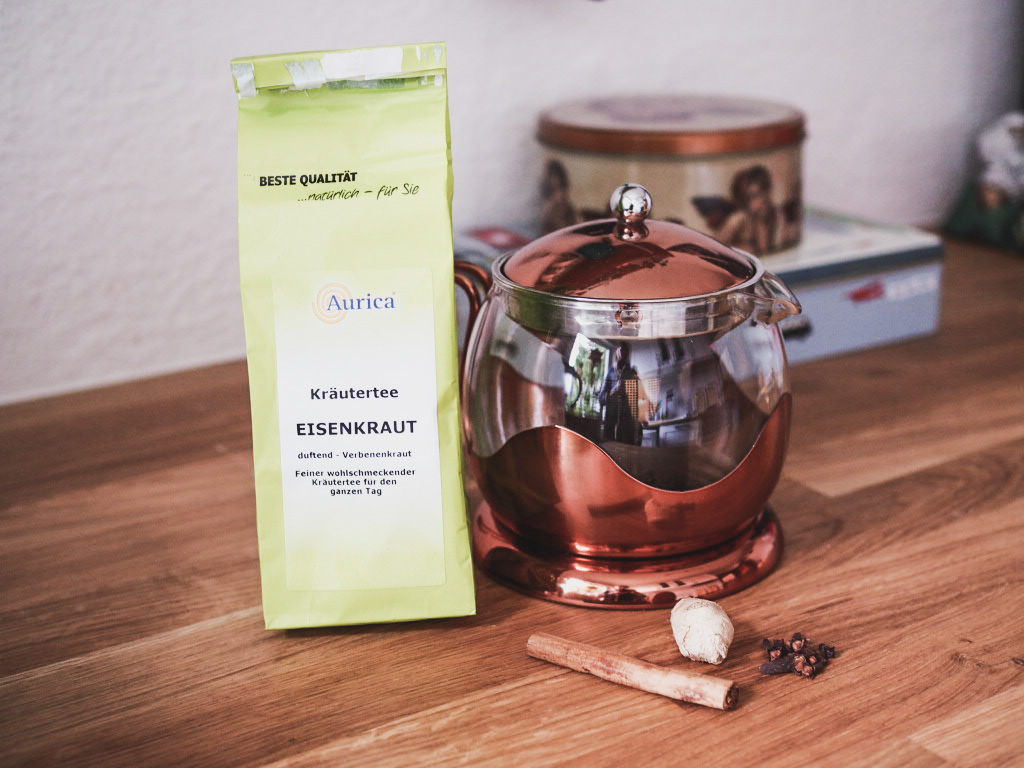
Obviously there’s no guarantee that this tea will induce labour but it doesn’t cause any harm either. Plus, it’ll give you something to do whilst waiting for baby!
- 1 cinnamon stick
- 1 small piece of ginger
- 10 cloves
- 1 tbs “Eisenkrauttee” (verbena tea)
Pour 1 litre of boiling water over the cinnamon stick, ginger and cloves. Let it brew for 10 minutes. Remove the spices and add the tea leaves. Let it brew for another 10 minutes, remove the tea leaves and drink throughout the day.
If you found this article useful you can support my work here:



4 Comments
Christine Weidner
Thank you for sharing your experience! 😍 I am also due to give birth at Helios Erlenbach in April so I’m really glad to already read such a personal and positive experience.
All the best,
Christine
lena
Hi Christine,
I’m so glad the article is helpful to you. All the best for your pregnancy and giving birth!
Angela Kneusels
Wow, Lena. Grossartig geschrieben.
lena
Danke! ☺️ Wenn es nur einer Person hilft, hat es sich schon gelohnt. ❤️